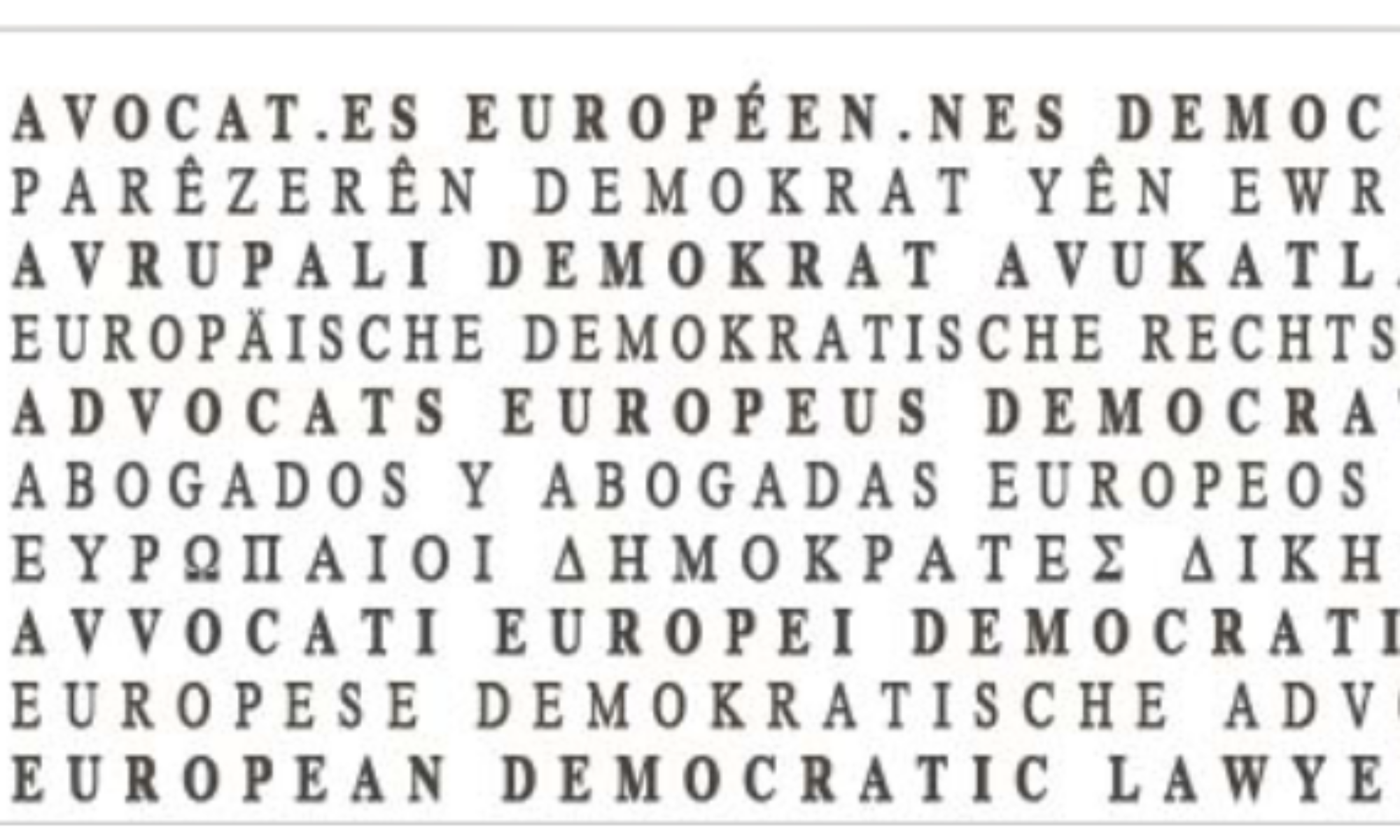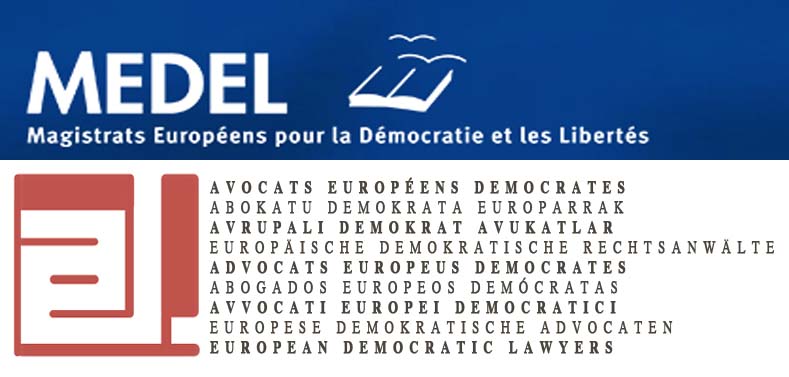A Joint Statement by Legal Professional Groups & Human Rights NGOs on the forthcoming trials of the cases of the 709 Crackdown
To:
All Press and Media (for immediate release)
From: China Human Rights Lawyers Concern Group (CHRLCG)
Taiwan Support China Human Rights Lawyers Network (TCLN)
Subject: A Joint Statement To the Chinese Government Calling on Fair Trial
Date: 23/03/2017
Enquiries/ Interview: Kit Chan, Executive Director, CHRLCG (+852 2388 1377) Chou Ching-Chang, General Secretary, TCLN (+886 0912 561 284)
(23 March 2017 – Hong Kong/ Taiwan) Since 9 July 2015, the Chinese government has questioned, summoned and/or detained over 300 human rights lawyers, law firm staff and human rights defenders in a manoeuvre now commonly known as the “709 Crackdown”. Some of these individuals were subsequently indicted for their “crimes”. In early August 2016, four individuals – human rights lawyer Zhou Shifeng and defenders Hu Shigen, Gou Hongguo and Zhai Yanmin – were convicted and sentenced in a deeply flawed trial process that breached both domestic and international laws. [1]
Lawyers Li Heping, Xie Yang and Wang Quanzhang as well as legal activist Wu Gan have been indicted following the Crackdown. It has remained a concern that no trial arrangements have thus far been made for the cases. To caution against repeating the rights violations that took place in the August 2016 hearings, we, the undersigned, solemnly call on the Chinese government to abide by its laws and Constitution as well as international human rights standards by ensuring that respective judicial processes, when take place, will be conducted in full compliance with the basic principles of due process, including the right to a fair trial. Specifically, we are concerned about violations related to independent and impartial courts; the presumption of innocence; the right to counsel; and an open trial. We also express our grave and continued concern about the status of lawyer Jiang Tianyong, who has been held in secret detention since 21 November 2016. We also express our grave and continued concern about the status of lawyer Jiang Tianyong, who has been held in secret detention since 21 November 2016.[2]
Case Background
Lawyers Li Heping and Wang Quanzhang were taken by police on 10 July 2015 from different locations in Beijing; they were charged with “subverting state power” on 5 December 2016 and 14 February 2017, respectively. However, their families have thus far not been provided with any formal documents on their indictment. For the past 20 months, lawyers Li and Wang have been held incommunicado. However, their family members have been pressured by the police to make videos to persuade the lawyers to plead guilty.
The Chinese authorities’ decision not to respond to credible allegations regarding the torture suffered by the two lawyers, which came to light in January 2017, is both deeply regrettable and deeply irresponsible.
Lawyer Xie Yang was captured in Huaihua, Hunan, on 11 July 2015, and was indicted on 16 December 2016 for the alleged crimes of “inciting subversion of state power” and “disruption of court order”. Xie was not allowed to meet the defence counsels appointed by his family until the end of November 2016. As relayed by his defence counsels after meeting him, Xie suffered long-term sleep and food deprivation during his detention. He was also reported to have been physically assaulted and suffered inhuman treatment. [3] Xie’s lawyers have been barred from meeting him since testimonies of his alleged torture was publicized in January 2017. Wu Gan, activist and staff member of the Fengrui Law Firm, is also awaiting trial for allegedly “subverting state power”. Wu has also detailed, through conversations with his lawyers, the torture experienced during his detention.
Our Calls
Due process, including the right to a fair trial, is the bedrock of the rule of law. The right to fair trial is an essential component of the Universal Declaration of Human Rights (UDHR) and the International Covenant on Civil and Political Rights (ICCPR) signed by China in 1998. It is stipulated not only in the Constitution of the People’s Republic of China (the PRC Constitution), but also in the country’s Criminal Procedure Law (CPL). As a right stipulated by both domestic and international laws, the protection of the right to fair trial without undue delay is a legal obligation that the Chinese government must uphold.
We remind the government that any further trespass of the rule of law and the basic human rights of individuals will result in perpetuating the country’s reputation for, and image of, injustice.
In this light, we urge the Chinese government and the People’s Court in charge of the cases (the Court) in particular, to ensure that the following minimum requirements are met in the forthcoming trials aforesaid:
- Independent and Impartial Court [4]
While the UDHR stresses “an independent and impartial tribunal”, the PRC Constitution has gone further to stipulate that “(t)he people’s courts exercise judicial power independently, in accordance with the provisions of law, and not subject to interference by any administrative organ, public organization or individual.” The necessity for courts to maintain independence and impartiality is highlighted also in the ICCPR and in the domestic CPL.
We urge the Chinese government not to intervene or interfere with the Court in its handling of the cases. We also call on the Court and the presiding judges to adhere to all principles of due process, including fair trial and all other rights and principles set forth in the UDHR, the ICCPR, the PRC Constitution, the CPL, and including the rights identified herein.
- Presumption of Innocence [5]
Presumption of innocence is the starting point of equality before the law. Accordingly, defendants to be tried should not be treated in a manner that presumes guilt until proven otherwise.
We hence condemn the authorities’ efforts to enforce self-incrimination via state media and to attempt to coerce family members to persuade the accused lawyers to plead guilty. We strongly condemn the use of torture and inhuman treatments to extract confession.
We urge the Court to investigate the complaints of torture and the unlawful practices used to extract confessions and self-incrimination so as to ensure that any confessions are properly and legally admissible. We similarly urge authorities to undertake prompt, independent and effective investigations into such allegations so that all perpetrators are held legally accountable. We call on the Court to act in accordance with the law, and to exclude all illegal evidence, including that obtained via means of the above. [6]
- Right to Counsel [7]
The right to counsel is a constitutionally protected right in China. We, however, remain greatly disturbed by the four 709 Crackdown trials held in early August 2016, in which none of the accused was defended by counsel of their or their family’s free choosing.
We are also gravely concerned that lawyers Li Heping and Wang Quanzhang have thus far not been able to meet the lawyers appointed by their families. While the CPL permits derogation of rights to meet with counsel during investigation of state security-related crimes, we are of the view that the restriction should no longer apply at a stage when investigation is completed and both lawyers are now indicted and awaiting trials.
We hence urge the Chinese authorities to immediately arrange for lawyers Li and Wang to meet the counsels appointed by their families. In case where the detained lawyers intend to dismiss their counsels, as the police have once claimed, we maintain that article 8 of the Provisions of the Supreme People’s Court, the Supreme People’s Procuratorate, the Ministry of Public Security and Other Departments on Legally Protecting Lawyers’ Practicing Rights (2015) should be observed to allow the defence counsels to meet their clients and affirm their intention in person.
Along these lines, we call on the Chinese authorities to ensure that the accused individuals will be provided with adequate opportunities, time and facilities to consult their counsels of choosing in full confidentiality. [8]
We also call on the Court to ensure that the prosecutors and defence counsels will be treated equally and fairly during the trials and that the defendants will have all the guarantees necessary for their respective defence.
- Open Trial [9]
The PRC Constitution stipulates that court hearings should be open. Accordingly, all trials, unless implicating state secrets, protection of minors or matters of privacy, should be open to the public.
We take note of the four trials held in August 2016. We deem it regrettable that dates and information about the trials was released either on the eve of the trials or on the day they were to take place. It also remains a deep concern of ours that the courtrooms for those trials were attended by authority-invited media and that none of the family members or defence counsels appointed by them was allowed to attend the hearings.
Referring to the CPL and the PRC Court Rules of the People’s Courts (the Court Rules), [10] we urge the Court to abide by its judicial obligations, and ensure that the date, time and venue of the trials be duly announced in accordance with the law; that next-of-kin to the defendants shall be given priority to attend the court hearings; and that all media and members of the public have equal access to the hearings.
We also strongly caution against any attempt to hold a secret trial. The abusive use of the broad and imprecise definition of state secrecy against rights defenders in China has long and often been criticized both in and out of the country.
We call on the Court to take note of the Johannesburg Principles, and ensure (1), that no restriction to the right to open trial should be allowed unless and until evidence is legally sufficient to prove actual harm to a legitimate national security interest; and (2), that restriction of access to the trials should only be made “to the extent strictly necessary for the purposes of considering evidence that has been classified as a secret”. [11]
We, the undersigned, will continue to monitor the status of the human rights lawyers and defenders implicated in the 709 Crackdown, including the protection of their basic human rights.
Initiators
China Human Rights Lawyers Concern Group (CHRLCG)
Taiwan Support China Human Rights Lawyers Network (TCLN)
Co-signatories
Bar Human Rights Committee of England and Wales
Committee to Support Chinese Lawyers (CSCL)
Council of Bars and Law Societies of Europe (CCBE)
European Democratic Lawyers (AED)
International Association of People’s Lawyers (IAPL)
International Commission of Jurists (ICJ)
Lawyers for Lawyers (L4L)
L’Institut des droits de l’homme des avocats européens (IDHAE)
L’Observatoire international des avocats en danger (OIAD)
Union Internationale des Avocats (UIA)
Boehringer, Gill, Honorary Associate of School of Law, Macquarie University, Australia
Italianer, Joost, Dutch lawyer, part-time judge, member of the Dutch Disciplinary Court of Appeals for lawyers
MNA Rehan & Partners, Member of Islamabad Bar Association and Islamabad High Court Bar Association
Pils, Eva, Reader in Transnational Law Dickson Poon School of Law, King’s College London
Russell, Stuart, Co-director of International Association of People’s Lawyers Monitoring Committee
- Human Rights Organisations
Christian Solidarity Worldwide (CSW)
CIVICUS: World Alliance for Citizen Participation (CIVICUS)
Human Rights in China (HRIC)
Human Rights Now, Japan (HRN)
Human Rights Watch (HRW)
International Service for Human Rights (ISHR)
Justice and Peace Commission of the Hong Kong Catholic Diocese
Taiwan Association for China Human Rights (TACHR)
Taiwan Association for Human Rights (TAHR)
Taiwan, Judicial Reform Foundation (JRF)
Tibet Justice Center
[1] See details in a report prepared by the China Human Rights Lawyers Concern Group on 7 August 2016 https://goo.gl/WTvO5l
[2] For more details http://www.chrlawyers.hk/sites/default/files/Day%20of%20the%20Endangered%20lawyer%20English.pdf
http://www.chrlawyers.hk/en/%E6%96%87%E7%AB%A0%E9%A1%9E%E5%9E%8B/%E8%81%B2%E6%98%8E
[3] Transcription of interviews with lawyer Xie Yang by his counsel Chen Jiangang (1-4) https://chinachange.org/2017/01/19/transcript-of-interviews-with-lawyer-xie-yang-1/
[4] UDHR (art. 10), ICCPR (art. 14.1), the PRC Constitution (art.126) and CPL (arts. 3 and 5)
[5] UDHR (art. 11), ICCPR (art. 14.2), CPL (art. 12)
[6] CPL (arts. 18, 50 and 54)
[7] The PRC Constitution (art. 125), CPL (art. 11), ICCPR (art. 14.3d), the Basic Principles (art. 1, 19, 27)
[8] UDHR (art. 11), ICCPR (art. 14.3b) and the Basic Principles (art. 8)
[9] The PRC Constitution (art. 125), UDHR (art. 10), ICCPR (art. 14.1)
[10] CPL (art. 182), the Court Rules (art. 9)
[11] Joshua D. Rosenzweig, “Public Access and the Right to a Fair Trial in China”, the Dui Hua Foundation, http://duihua.org/wp/?page_id=2542 , visited on 3 March 2017



